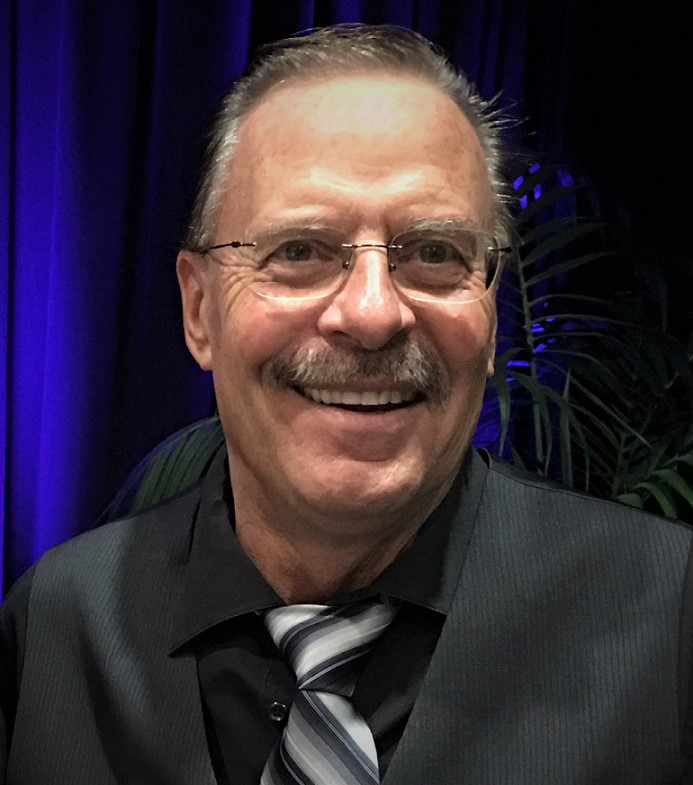
Tina Baldwin
Project Director
email
|

Thomas F. Coleman
Legal Director
email |
|
*
These legal principles have been endorsed by: The Arc of California,
California Siblings Leadership
Network, Autistic Self Advocacy
Network, TASH, Washington Autism Alliance and Advocacy,
Disability
Rights Legal Center, Mental Health Advocacy Services, Louisiana State
Nurses
Association, West Virginia Developmental Disabilities
Council, and Different Brains.
For a PDF version of this page,
click here. For more
information on disability, abuse, and therapy,
click here.
|
Project Advisors
|
 Biza
Stenfert Kroese is a Consultant Clinical Psychologist and a Senior
Researcher in the School of Psychology at the University of Birmingham,
UK, and Chair of CanDo, a support service for parents with intellectual
disabilities. Dr. Stenfert Kroese is co-author of Cognitive
Behaviour Therapy for People with Intellectual Disabilities: Thinking
Creatively (Palgrave
Macmillan 2017). The book is based on the authors’ clinical experiences
and introduces novel approaches on how to adapt CBT assessment and
treatment methods for individual therapy and group interventions. It
explains the challenges of adapting CBT to the needs of clients with
intellectual disabilities and suggests innovative and practical
solutions. Biza
Stenfert Kroese is a Consultant Clinical Psychologist and a Senior
Researcher in the School of Psychology at the University of Birmingham,
UK, and Chair of CanDo, a support service for parents with intellectual
disabilities. Dr. Stenfert Kroese is co-author of Cognitive
Behaviour Therapy for People with Intellectual Disabilities: Thinking
Creatively (Palgrave
Macmillan 2017). The book is based on the authors’ clinical experiences
and introduces novel approaches on how to adapt CBT assessment and
treatment methods for individual therapy and group interventions. It
explains the challenges of adapting CBT to the needs of clients with
intellectual disabilities and suggests innovative and practical
solutions.
|
 Reverend
William C. Gaventa is the chair of the National Collaborative on Faith
and Disability and Director of the Summer Institute on Theology and
Disability. As writer and author, Rev. Gaventa served as Editor of the Journal
of Religion, Disability, and Health from
1996-2010. He edited the newsletter for the Religion and Spirituality
Division of the American Association on Intellectual and Developmental
Disabilities, was an adviser for the Spiritual and Religious Supports
Series for Exceptional
Parent Magazine,
and was a columnist for Insight,
the national newsletter of the Arc USA. Rev. Gaventa is the author of Disability
and Spirituality: Recovering Wholeness (Baylor
University Press - 2018) Reverend
William C. Gaventa is the chair of the National Collaborative on Faith
and Disability and Director of the Summer Institute on Theology and
Disability. As writer and author, Rev. Gaventa served as Editor of the Journal
of Religion, Disability, and Health from
1996-2010. He edited the newsletter for the Religion and Spirituality
Division of the American Association on Intellectual and Developmental
Disabilities, was an adviser for the Spiritual and Religious Supports
Series for Exceptional
Parent Magazine,
and was a columnist for Insight,
the national newsletter of the Arc USA. Rev. Gaventa is the author of Disability
and Spirituality: Recovering Wholeness (Baylor
University Press - 2018)
|
 Dr.
Matthew P. Janicki is co-chair of the National Task Grroup on
Intellectual Disability and Dementia Practices. He is a member of the
Federal Advisory Council on Alzheimer’s Research, Care, and Services.
Dr. Janicki is an associate professor in the Department of Disability
and Human Development at the University of Chicago. He is also a
research professor with the University of Maine's Center on Aging. Dr.
Janicki is the author of many books and articles on aging, dementia,
public policy, and rehabilitation of people with intellectual and
developmental disabilities, including Dementia,
Aging, and Intellectual Disabilities: A Handbook. Dr.
Matthew P. Janicki is co-chair of the National Task Grroup on
Intellectual Disability and Dementia Practices. He is a member of the
Federal Advisory Council on Alzheimer’s Research, Care, and Services.
Dr. Janicki is an associate professor in the Department of Disability
and Human Development at the University of Chicago. He is also a
research professor with the University of Maine's Center on Aging. Dr.
Janicki is the author of many books and articles on aging, dementia,
public policy, and rehabilitation of people with intellectual and
developmental disabilities, including Dementia,
Aging, and Intellectual Disabilities: A Handbook.
|
|
 Randall
Phelps, M.D., Ph.D. is a Developmental and Behavioral Pediatrician and
Associate Professor of Pediatrics at the Child Development and
Rehabilitation Center, Institute on Development and Disability, Oregon
Health and Science University. Dr. Phelps attends on interdisciplinary
teams to provide diagnostic assessments and care to children with
developmental disabilities and/or behavioral conditions throughout the
state of Oregon and surrounding states. He is co-editor of Trauma,
Autism, and Neurological Disorders Integrating Research, Practice, and
Policy (Springer
2018) Topics featured in the book
include: the neurobiological contributors to posttraumatic stress
disorder (PTSD); fetal alcohol spectrum disorders and its diagnosis in
children with a history of trauma; interventions for trauma and
stressor-related disorders in preschool-aged children; reactive
attachment disorder (RAD) and autism spectrum disorder (ASD) diagnosis
and care in a cultural context; special population consideration in ASD
identification and treatment; and trauma and neurodevelopmental
disorders from a public health perspective. Randall
Phelps, M.D., Ph.D. is a Developmental and Behavioral Pediatrician and
Associate Professor of Pediatrics at the Child Development and
Rehabilitation Center, Institute on Development and Disability, Oregon
Health and Science University. Dr. Phelps attends on interdisciplinary
teams to provide diagnostic assessments and care to children with
developmental disabilities and/or behavioral conditions throughout the
state of Oregon and surrounding states. He is co-editor of Trauma,
Autism, and Neurological Disorders Integrating Research, Practice, and
Policy (Springer
2018) Topics featured in the book
include: the neurobiological contributors to posttraumatic stress
disorder (PTSD); fetal alcohol spectrum disorders and its diagnosis in
children with a history of trauma; interventions for trauma and
stressor-related disorders in preschool-aged children; reactive
attachment disorder (RAD) and autism spectrum disorder (ASD) diagnosis
and care in a cultural context; special population consideration in ASD
identification and treatment; and trauma and neurodevelopmental
disorders from a public health perspective.
|
|
 Daniel
B. LeGoff. Ph.D., LS. is a licensed and board-certified pediatric
neuropsychologist and the pioneer of LEGO® Therapy. He specializes in
the assessment and treatment of neurodevelopmental and neurobehavioral
conditions in infants, children, and adolescents. He is the author of
LEGO®-Based Therapy: How to build
social competence through LEGO®-based Clubs for children with autism and
related conditions (Jessica
Kingsley Publishers 2014). Action for Aspergers says this about the
book: LEGO-Based Therapy
defines a particular therapeutic approach. Its aim is to provide a
social development intervention for children with Autism Spectrum
Conditions (ASCs). LEGO-Based Therapy teaches turn taking, sharing,
making eye contact when needed and social rules adherence (using
greetings). Children are encouraged to swap roles and tasks and engage
in intelligent conflict resolution and social problem solving with very
little adult intervention." More recently, Dr. LeGoff wrote
How Lego-Based Therapy for Autism Works.
Through a series of case studies, the book explains how and why Lego
therapy helps to promote the development of social skills for children
with autism spectrum disorders (ASDs) and related conditions. Daniel
B. LeGoff. Ph.D., LS. is a licensed and board-certified pediatric
neuropsychologist and the pioneer of LEGO® Therapy. He specializes in
the assessment and treatment of neurodevelopmental and neurobehavioral
conditions in infants, children, and adolescents. He is the author of
LEGO®-Based Therapy: How to build
social competence through LEGO®-based Clubs for children with autism and
related conditions (Jessica
Kingsley Publishers 2014). Action for Aspergers says this about the
book: LEGO-Based Therapy
defines a particular therapeutic approach. Its aim is to provide a
social development intervention for children with Autism Spectrum
Conditions (ASCs). LEGO-Based Therapy teaches turn taking, sharing,
making eye contact when needed and social rules adherence (using
greetings). Children are encouraged to swap roles and tasks and engage
in intelligent conflict resolution and social problem solving with very
little adult intervention." More recently, Dr. LeGoff wrote
How Lego-Based Therapy for Autism Works.
Through a series of case studies, the book explains how and why Lego
therapy helps to promote the development of social skills for children
with autism spectrum disorders (ASDs) and related conditions.
|
|
 Gary
LaVigna, Ph.D. is the Clinical Director of the Institute for Applied
Behavior Analysis in Los Angeles. He spends much of his time consulting
with organizations on establishing nonaversive behavior support plans
for individuals exhibiting severe and challenging behaviors and
presenting seminars on the topic throughout the world. Dr. LaVigna's
work is reported in numerous articles and his coauthored books, such as
Alternatives to Punishment,
Progress Without Punishment and
The Periodic Service Review: A
Total Quality Assurance System For Human Services and Education.
He is also coauthor of New
Directions in the Treatment of Aggressive Behavior for Persons with
Mental and Developmental Disabilities.
(Nova Science Publishers, Ltd. 2015) Gary
LaVigna, Ph.D. is the Clinical Director of the Institute for Applied
Behavior Analysis in Los Angeles. He spends much of his time consulting
with organizations on establishing nonaversive behavior support plans
for individuals exhibiting severe and challenging behaviors and
presenting seminars on the topic throughout the world. Dr. LaVigna's
work is reported in numerous articles and his coauthored books, such as
Alternatives to Punishment,
Progress Without Punishment and
The Periodic Service Review: A
Total Quality Assurance System For Human Services and Education.
He is also coauthor of New
Directions in the Treatment of Aggressive Behavior for Persons with
Mental and Developmental Disabilities.
(Nova Science Publishers, Ltd. 2015)
|
|
 Thomas
Buckley, Ed.D. has an impressive
curriculum vitae.
For the past two years, he has been the Director of Population Health at
YAI -- a world class organization providing exceptional-quality,
culturally competent, person-centered services and supports to over
20,000 persons with intellectual and developmental disabilities.
Prior to that, Dr. Buckley was the CEO and founder of
The Buckley Medical Home -- operated by a
collaborative transdisciplinary team offering a healthcare delivery
approach focusing on the whole person with an Intellectual/Developmental
Disability (I/DD) and/or mental health conditions including progressive
dementia. He also
serves on the board
of directors of the Commission on Accreditation of Rehabilitative
Facilities. CARF International is an independent nonprofit
organization that has accredited over 57,000 agencies, certifying that
they meet specialized standards of care for mental health. Thomas
Buckley, Ed.D. has an impressive
curriculum vitae.
For the past two years, he has been the Director of Population Health at
YAI -- a world class organization providing exceptional-quality,
culturally competent, person-centered services and supports to over
20,000 persons with intellectual and developmental disabilities.
Prior to that, Dr. Buckley was the CEO and founder of
The Buckley Medical Home -- operated by a
collaborative transdisciplinary team offering a healthcare delivery
approach focusing on the whole person with an Intellectual/Developmental
Disability (I/DD) and/or mental health conditions including progressive
dementia. He also
serves on the board
of directors of the Commission on Accreditation of Rehabilitative
Facilities. CARF International is an independent nonprofit
organization that has accredited over 57,000 agencies, certifying that
they meet specialized standards of care for mental health.
|
|
 Aafke
Scharloo MSc. is a fully licensed clinical psychologist
and a remedial educationalist. She began in the late 1980s as a pioneer
in the approach to sexual abuse in people with intellectual disabilities
and has been involved in this subject ever since. Aafke is also forensic
interviewer and one of the designers of the of Minimal Facts Interviews
in suspicions of sexual abuse in the Netherlands. She works throughout
the Netherlands as an expert for service providers and healthcare
professionals, parents and people with developmental disabilities
themselves. She also works with the police and justice system on issues
concerning this subject. Alongside substantive clinical work, Aafke also
works as an educator, trainer, supervisor and adviser. Aafke gives
national and international lectures and publishes articles in journals
and books and is a member of the ISPCAN working group on children with
disabilities. She is independently established and specialist in issues
concerning people with developmental disabilities, sexual abuse,
maltreatment and trauma.
She is co-author of Psychological First
Aid for People with Intellectual and Developmental Disabilities Who Have
Experienced Sexual Abuse (Jessica Kingsley Publishers 2016). Aafke
Scharloo MSc. is a fully licensed clinical psychologist
and a remedial educationalist. She began in the late 1980s as a pioneer
in the approach to sexual abuse in people with intellectual disabilities
and has been involved in this subject ever since. Aafke is also forensic
interviewer and one of the designers of the of Minimal Facts Interviews
in suspicions of sexual abuse in the Netherlands. She works throughout
the Netherlands as an expert for service providers and healthcare
professionals, parents and people with developmental disabilities
themselves. She also works with the police and justice system on issues
concerning this subject. Alongside substantive clinical work, Aafke also
works as an educator, trainer, supervisor and adviser. Aafke gives
national and international lectures and publishes articles in journals
and books and is a member of the ISPCAN working group on children with
disabilities. She is independently established and specialist in issues
concerning people with developmental disabilities, sexual abuse,
maltreatment and trauma.
She is co-author of Psychological First
Aid for People with Intellectual and Developmental Disabilities Who Have
Experienced Sexual Abuse (Jessica Kingsley Publishers 2016).
|
|
 Martine
Spijker MSc. is a healthcare psychologist, EMDR-practitioner and
psychotraumatherapist. She co-founded a treatment centre for helping
children and young adults with mild intellectual disabilities and
trauma. Martine also runs a private practice specialising in treating
trauma and sexual abuse in children, teenagers and young adults. Co-author of: Psychological First Aid for people
with intellectual disabilities who have experienced sexual abuse. A step
by step programme (2017). Martine
Spijker MSc. is a healthcare psychologist, EMDR-practitioner and
psychotraumatherapist. She co-founded a treatment centre for helping
children and young adults with mild intellectual disabilities and
trauma. Martine also runs a private practice specialising in treating
trauma and sexual abuse in children, teenagers and young adults. Co-author of: Psychological First Aid for people
with intellectual disabilities who have experienced sexual abuse. A step
by step programme (2017).
|
|
 Simone
Ebbers MSc. is a healthcare psychologist, child
psychologist, psychotraumatherapist and EMDR-practitioner.
Simone has been working in secondary and higher vocational education.
She also worked as a behaviour specialist within a treatment centre for
children and teenagers with a mild intellectual disability and
psychiatric issues. Since
2013 she
runs a private practice assessing and treating trauma and sexual abuse,
and specializes in working with people with intellectual disabilities.
Next to the clinical work, Simone also works as an educator, trainer,
supervisor and adviser. In 2002, she wrote a study book on sexuality and
sexual abuse for care providing professions. She is also co-author of:
Psychological First Aid for people with intellectual disabilities who
have experienced sexual abuse. Simone
Ebbers MSc. is a healthcare psychologist, child
psychologist, psychotraumatherapist and EMDR-practitioner.
Simone has been working in secondary and higher vocational education.
She also worked as a behaviour specialist within a treatment centre for
children and teenagers with a mild intellectual disability and
psychiatric issues. Since
2013 she
runs a private practice assessing and treating trauma and sexual abuse,
and specializes in working with people with intellectual disabilities.
Next to the clinical work, Simone also works as an educator, trainer,
supervisor and adviser. In 2002, she wrote a study book on sexuality and
sexual abuse for care providing professions. She is also co-author of:
Psychological First Aid for people with intellectual disabilities who
have experienced sexual abuse.
|
| |



 Biza
Stenfert Kroese is a Consultant Clinical Psychologist and a Senior
Researcher in the School of Psychology at the University of Birmingham,
UK, and Chair of CanDo, a support service for parents with intellectual
disabilities. Dr. Stenfert Kroese is co-author of
Biza
Stenfert Kroese is a Consultant Clinical Psychologist and a Senior
Researcher in the School of Psychology at the University of Birmingham,
UK, and Chair of CanDo, a support service for parents with intellectual
disabilities. Dr. Stenfert Kroese is co-author of Reverend
William C. Gaventa is the chair of the National Collaborative on Faith
and Disability and Director of the Summer Institute on Theology and
Disability. As writer and author, Rev. Gaventa served as Editor of the
Reverend
William C. Gaventa is the chair of the National Collaborative on Faith
and Disability and Director of the Summer Institute on Theology and
Disability. As writer and author, Rev. Gaventa served as Editor of the Dr.
Matthew P. Janicki is co-chair of the National Task Grroup on
Intellectual Disability and Dementia Practices. He is a member of the
Federal Advisory Council on Alzheimer’s Research, Care, and Services.
Dr. Janicki is an associate professor in the Department of Disability
and Human Development at the University of Chicago. He is also a
research professor with the University of Maine's Center on Aging. Dr.
Janicki is the author of many books and articles on aging, dementia,
public policy, and rehabilitation of people with intellectual and
developmental disabilities, including
Dr.
Matthew P. Janicki is co-chair of the National Task Grroup on
Intellectual Disability and Dementia Practices. He is a member of the
Federal Advisory Council on Alzheimer’s Research, Care, and Services.
Dr. Janicki is an associate professor in the Department of Disability
and Human Development at the University of Chicago. He is also a
research professor with the University of Maine's Center on Aging. Dr.
Janicki is the author of many books and articles on aging, dementia,
public policy, and rehabilitation of people with intellectual and
developmental disabilities, including



 Aafke
Scharloo MSc.
Aafke
Scharloo MSc.  Martine
Spijker MSc. is a healthcare psychologist, EMDR-practitioner and
psychotraumatherapist. She co-founded a treatment centre for helping
children and young adults with mild intellectual disabilities and
trauma. Martine also runs a private practice specialising in treating
trauma and sexual abuse in children, teenagers and young adults.
Martine
Spijker MSc. is a healthcare psychologist, EMDR-practitioner and
psychotraumatherapist. She co-founded a treatment centre for helping
children and young adults with mild intellectual disabilities and
trauma. Martine also runs a private practice specialising in treating
trauma and sexual abuse in children, teenagers and young adults. Simone
Ebbers MSc. is a healthcare psychologist,
Simone
Ebbers MSc. is a healthcare psychologist,